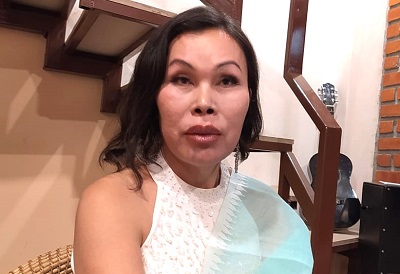Imphal, (Asian independent) The transgender community in Manipur has raised strong objections to the inclusion of only 239 of its members in the state’s final electoral rolls, asserting that this figure significantly underrepresents their actual population.
Santa Khurai, a trans activist and secretary of the All Manipur Nupi Manbi (trans-women) Association (AMANA), emphasised that the adult trans population in the state already exceeds 4,000.
The final electoral rolls, released on Monday by Manipur Chief Electoral Officer Pradeep Kumar Jha, reported that out of the total of 20,26,623 electors, including 10,46,706 females, only 239 individuals identified as third gender or transgender.
Expressing disbelief at the “remarkably” low figure, Khurai, also a researcher and writer, said: “We are stunned to see the terribly small number of just 239 third-gender voters in the final electoral rolls.”
An official of the state Election Commission acknowledged the challenge of identifying the third gender for inclusion in the rolls but affirmed that corrective measures could be taken to rectify the gender status.
In 2020, during the height of the Covid-19 pandemic, AMANA conducted a survey, distributing support materials to trans community members and identifying 4000 adult members.
The AMANA Secretary acknowledged the likelihood that this figure is an underestimate due to many individuals avoiding participation out of fear of social stigma.
To rectify this discrepancy, AMANA plans to engage with the election officials to ensure a more accurate representation of the transgender community in the electoral rolls.
Khurai pointed out that the failure to involve transgender individuals in the survey and the reluctance of parents to disclose the identities of their trans children could be contributing factors to the “faulty figure”.
The AMANA Secretary, who addressed the 48th United Nations Human Rights Council Session in 2021, highlighted the importance of addressing issues faced by the LGBTIQ+ community, extending from democratic access to safe water and sanitation.









